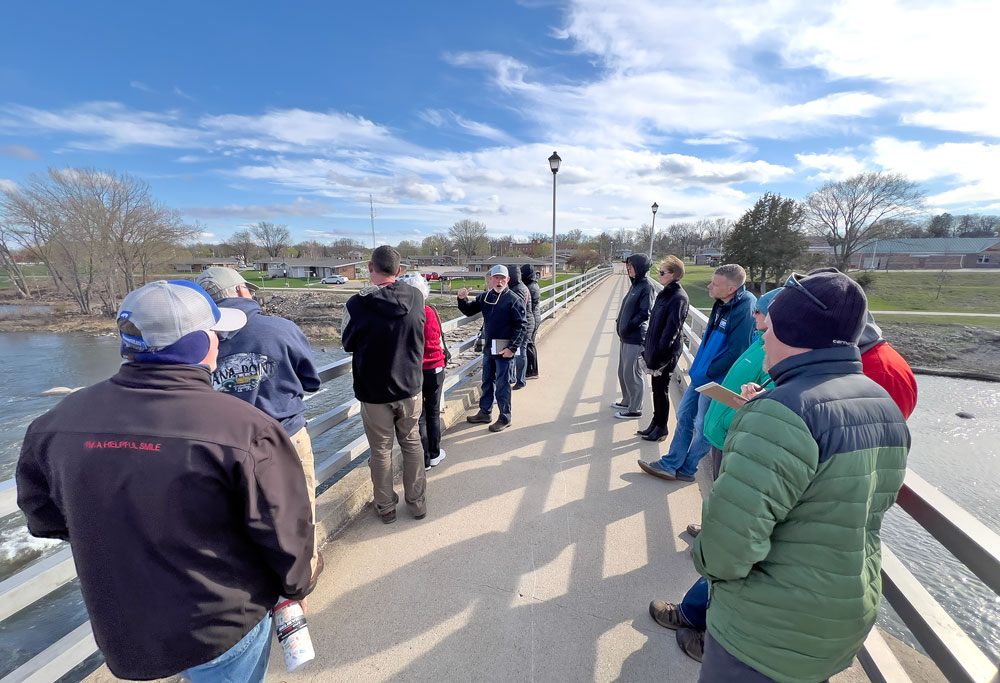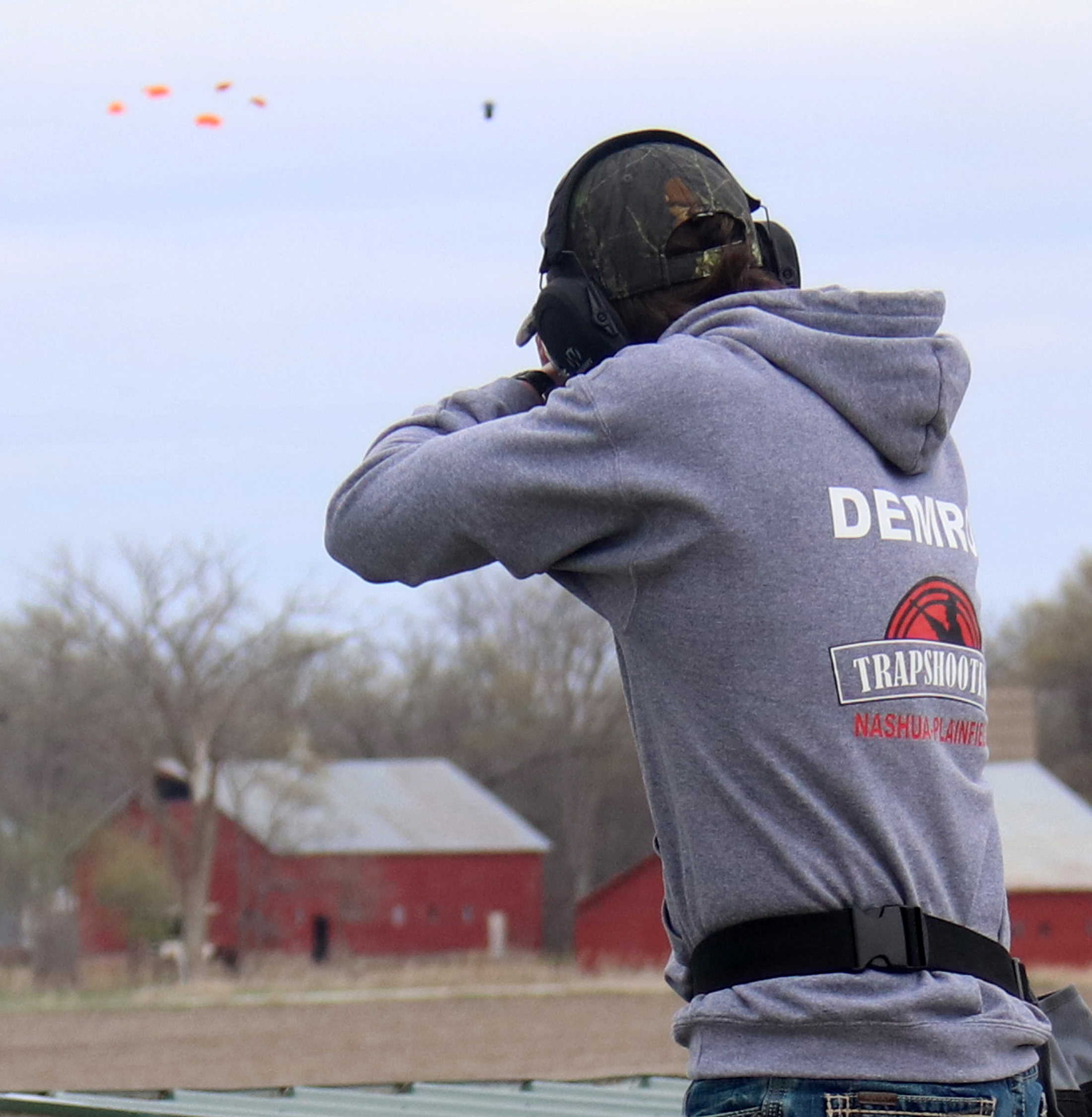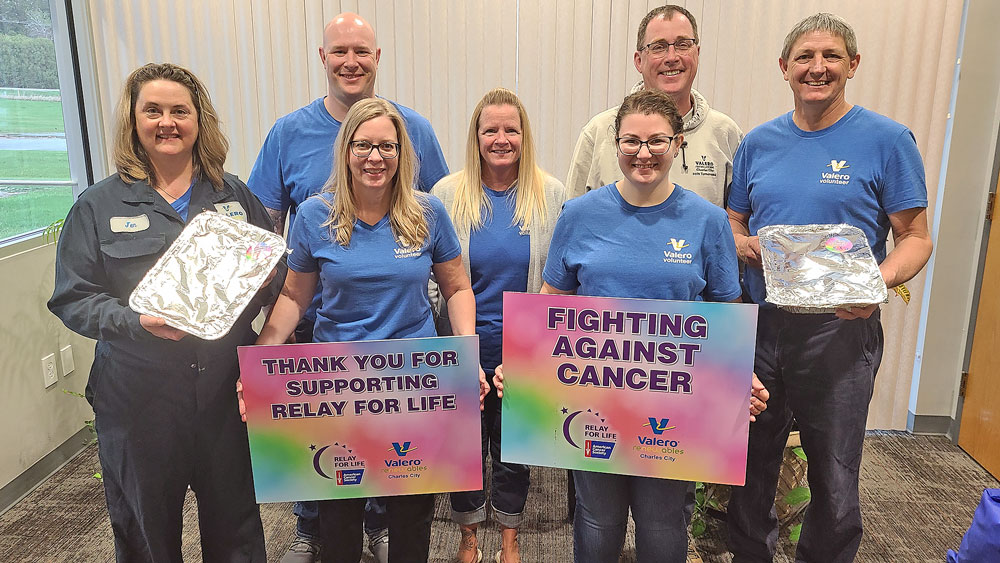Trooper aids RAGBRAI biker with portable defibrillator near Charles City

By Bob Steenson, bsteenson@charlescitypress.com
A trooper with the Iowa State Patrol, armed with a portable defibrillator, reportedly helped save the life of a RAGBRAI rider Thursday just outside Charles City.
The Iowa State Patrol said in a social media post that the bicycle rider went into cardiac arrest just as the rider was entering Charles City, the overnight stop on Thursday’s leg of the cross-state ride.
The Iowa State Patrol said Trooper Darren Flaherty assisted other first responders by using an automatic external defibrillator (AED) that he – like all state troopers – carries in his patrol car.
The cyclist, who was not identified in the online post, was taken to a local hospital and was currently doing well, the official said.
An official said it happened around noon Thursday near the Highway 14/Highway 218 exit east of town. Scanner traffic at 12:45 p.m. reported officials were dealing with a cardiac incident.
A similar event happened three years ago, on the 2019 RAGBRAI, when Trooper Bob Conrad used the AED carried in his squad car to help resuscitate a Washington state man who collapsed on the route about 15 miles northwest of Centerville.
Firefighters riding as a group in that RAGBRAI saw the man go down and quickly began performing CPR, according to a report published at the time by the Des Moines Register. Sgt. Nathan Ludwig of the State Patrol said Conrad was able to activate his AED and successfully got a pulse on the man, who was transported by ambulance to a hospital in Centerville then airlifted to a hospital in Des Moines.
“He was alert and talking by the time he was flown north for treatment,” Ludwig was quoted as saying.
According to the American Heart Association, an AED “is a lightweight, portable device that delivers an electric shock through the chest to the heart. The shock can potentially stop an irregular heart beat (arrhythmia) and allow a normal rhythm to resume following sudden cardiac arrest.”
The AED monitors the heart rhythm and can determine when a shock is needed to stop ventricular fibrillation, a rapid and unsynchronized heart rhythm that is the cause of most sudden cardiac arrests, the Heart Association says.
“AEDs are safe to use by anyone. Some studies have shown that 90 percent of the time AEDs are able to detect a rhythm that should be defibrillated. This data suggests that AEDs are highly effective in detecting when (or when not) to deliver a shock,” the Heart Association says.
On Thursday, cyclists were heading from Wednesday’s overnight stop in Mason City to Charles City for the next overnight. The route from Mason City to Charles City was 47.9 miles, the shortest leg of the seven-day trip, which had followed the longest leg, a 103.5-mile “century ride” from Emmetsburg to Mason City.
On Friday, the riders and all the support crews and all of their gear left Charles City for West Union, a 63-mile trip, followed by the final leg on Saturday, 65.4 miles from West Union to Lansing and the end of the 49th Register’s Annual Great Bicycle Ride Across Iowa.







Social Share